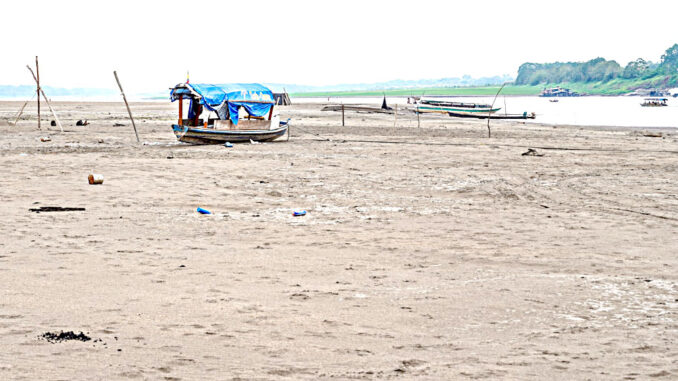
GENEVA — Increasingly intense floods and droughts are a “distress signal” of what is to come as climate change makes the planet’s water cycle ever more unpredictable, the United Nations said Monday.
Last year the world’s rivers were their driest for more than 30 years, glaciers suffered their largest loss of mass in half a century and there were also a “significant” number of floods, the UN’s World Meteorological Organization said in a report.
“Water is the canary in the coalmine of climate change,” WMO Secretary-General Celeste Saulo said in a statement accompanying the State of Global Water Resources Report.
“We receive distress signals in the form of increasingly extreme rainfall, floods and droughts which wreak a heavy toll on lives, ecosystems and economies,” she said.
Saulo said the heating up of Earth’s atmosphere had made the water cycle “more erratic and unpredictable, and we are facing growing problems of either too much or too little water”.
Last year was the hottest on record. High temperatures and widespread dry conditions produced prolonged droughts.
There were also many floods around the world.
These extreme events were influenced in part by naturally-occurring climate conditions including the La Nina and El Nino weather phenomenon — but also and increasingly by human-induced climate change.
“A warmer atmosphere holds more moisture, which is conducive to heavy rainfall. More rapid evaporation and drying of soils worsen drought conditions,” Saulo said.
Currently, 3.6 billion people have insufficient access to fresh water at least once a month per year, according to the UN.
This is forecast to rise to five billion by 2050.
For the past three years, more than 50 percent of river catchments have been drier than usual.
Rising temperatures meant glaciers melted at unprecedented rates, losing more than 600 gigatonnes of water, the worst in 50 years of observations, according to preliminary data for September 2022 to August 2023.
“Melting ice and glaciers threaten long-term water security for many millions of people. And yet we are not taking the necessary urgent action,” Saulo said.
In addition to curbing the man-made greenhouse gas emissions that cause global heating, the UN wants the world’s fresh water resources to be monitored better, so early warning systems can reduce the damage to the people and wildlife who rely on them to survive.
“We cannot manage what we do not measure,” Saulo stressed.


Be the first to comment